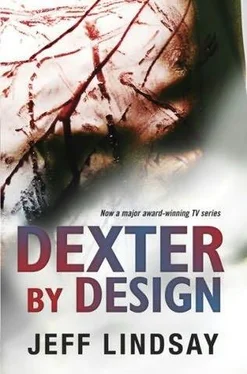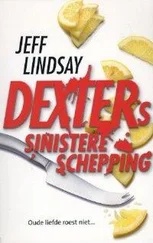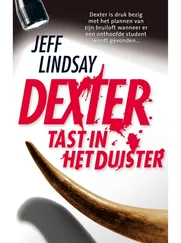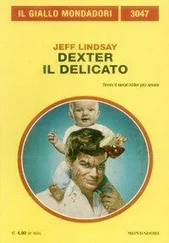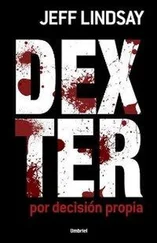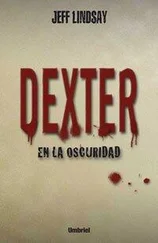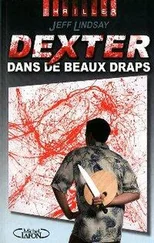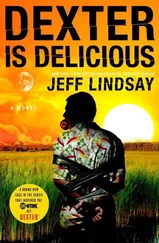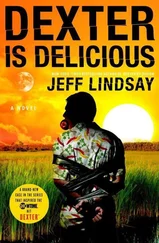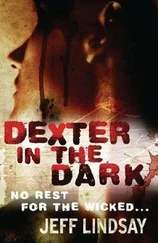The first showed Doncevic's body dumped in the tub. The second showed Dexter's arm raising the saw up, and the third was the saw slashing down on Doncevic. All three were short, two second loops that repeated, over and over, as the song lurched on.
From the middle box Weiss looked on as the voice sang, “Until one day Brandon Weiss will get this fellow, and I promise he will not be saved by luck. There is nothing you can do to escape me.
Because you have made me a crazy fuck.” The cheerful tune crashed on as Weiss sang, “A crazy fuck. A crazy fuck. When you killed Alex —I became —a crazy fuck.” But then, instead of a happy smile and dissolve to the first commercial, Weiss's face swelled up to fill the whole screen and he said, I loved Alex, and you took him away from me, just when we were getting started. In a way it's very funny, because he was the one who said we shouldn't kill anybody. I thought it would have been ... truer.” He made a face and said, “Is that a word?” He gave a short and bitter laugh and went on. “Alex came up with the idea of taking bodies from the morgue, so we didn't have to kill anybody.
And when you took him, you took away the only thing that stopped me from killing.”
For a moment he just stared at the camera. Then, very softly, he said, “Thank you. You're right. It's fun. I'm going to do it some more.” He gave a kind of twisted smile, as if he found something funny but didn't feel like laughing. “You know, I kind of admire you.” Then the screen went black.
When I was much younger I used to feel cheated by my lack of human feelings. I could see the huge barrier between me and humanity, a wall built of feelings I would never feel, and I resented it very much. But one of those feelings was guilt —one of the most common and powerful, in fact —and as I realized that Weiss was telling me I had turned him loose as a killer, I also realized that I really ought to feel a little guilt, and I was very grateful that I did not.
Instead of guilt, what I felt was relief. Chilled waves of it, pulsing through me and snapping the tension that had been winding itself tighter and tighter inside me. I was well and truly relieved —because now I knew what he wanted. He wanted me. It had not been said out loud, but it was there: the next time it will be you and yours. And following the relief came a sense of cold urgency, a slow spreading and flexing of dark interior talons as the Dark Passenger caught the challenge in Weiss's voice and responded in kind.
This was a great relief, too. Up until now the Passenger had been silent, having nothing at all to say about borrowed bodies, even when they were converted into patio furniture or gift baskets. But now there was menace, another predator sniffing down our back trail and threatening a territory we had already marked. And this was a challenge we could not allow, not for a moment. Weiss had served notice that he was coming —and finally, at last, the Passenger was rising from its nap and polishing its teeth. We would be ready.
But ready for what? I did not believe for a moment that Weiss would run away, that was not even a question. So what would he do?
The Passenger hissed an answer, an obvious one, but I felt its Tightness because it was what we would have done. And Weiss had as much as told me himself: I loved Alex and you took him away ...” So he would go after someone close to me. And by leaving the photo on Deutsch's body he had even told me who. It would be Cody and Astor, because that would hit me the same way I had hit him —and it would also bring me to him, and on his terms.
But how would he do it? That was the big question —and it seemed to me that the answer was fairly obvious. So far Weiss had been very straightforward —there is nothing terribly subtle about blowing up a house. I had to believe that he would move quickly, when he felt the odds favored him most. And since I knew he had been watching me, I had to assume he knew my daily routine —and the routine the children followed. They would be most vulnerable when Rita picked them up from school, coming out of a secure environment and into anything goes Miami. I would be far away at work, and he could certainly overcome one relatively frail and unsuspecting woman to grab at least one of the kids.
So what I had to do was get into position first, before Weiss, and watch for him to arrive. It was a simple plan, and not without risk I might well be wrong. But the Passenger was hissing agreement, and it is rarely wrong, so I resolved to leave work early, right after lunch, and get into position at the elementary school to intercept Weiss.
And once again, as I gathered myself for a great leap at the jugular vein of the impending foe —my telephone rang.
“Hey, buddy,” Kyle Chutsky said. “She's awake, and she's asking for you.”
THEY HAD MOVED DEBORAH OUT OF THE INTENSIVE CARE unit. I had one moment of disjointed confusion when I stared into the empty ICU. I had seen this in half a dozen movies, where the hero looks at the empty hospital bed and knows that it means whoever had been there is now dead, but I was quite sure Chutsky would have mentioned it if Debs had died, so I just went back down the hall to the reception area.
The woman at the desk made me wait while she did mysterious and very slow things with a computer, answered the phone, and talked with two of the nurses who were leaning nearby. The air of barely controlled panic that everyone had shown in the ICU was completely gone now, replaced by an apparently obsessive interest in phone calls and fingernails. But finally the woman admitted that there was a slim possibility of finding Deborah in room 235, which was on the second floor. That made so much sense I actually thanked her, and trudged off to find the room.
It was indeed on the second floor, and right next to room 233, so with a feeling that all was right with the world I stepped in to see Deborah propped up in bed, with Chutsky on the far side of the bed in virtually the same position he had held in the ICU. There was still an impressive array of machinery surrounding Deborah, and the tubes still went in and out, but as I entered the room she opened one eye and looked at me, managing a modest half-smile for my benefit.
“Alive alive oh” I said, thinking that quaint good cheer was called for. I pulled a chair up beside the bed and sat.
“Dex” she said in a soft and hoarse voice. She tried to smile again, but it was even worse than the first attempt, and she gave up and closed her eyes, seeming somehow to be receding into the snowy distance of the pillows.
“She's not too strong here yet” Chutsky said.
I guessed that” I said.
“So, uh, don't get her tired, or anything” he said. “The doctor said.”
I don't know if Chutsky thought I was going to suggest a game of volleyball, but I nodded and just patted Deborah's hand. “It's nice to have you back, sis” I said. “You had us worried.” I feel” she said in a feeble husky voice. But she did not tell us what she felt; instead, she closed her eyes again and parted her lips for a ragged breath, and Chutsky leaned forward and put a small chip of ice between her lips.
“Here” he said. “Don't try to talk yet.” Debs swallowed the ice, but frowned at Chutsky anyway. “I'm okay” she said, which was certainly a bit of an exaggeration. The ice seemed to help a little and when she spoke again her voice did not sound quite so much like a rat tail file on an old door knob. “Dexter” she said, and the sound of it was unnaturally loud, as if she was shouting in church. She shook her head slightly and, to my great amazement, I saw a tear roll out of the corner of her eye —something I had not seen from her since she was twelve. It slid across her cheek and down onto the pillow where it disappeared.
Читать дальше
